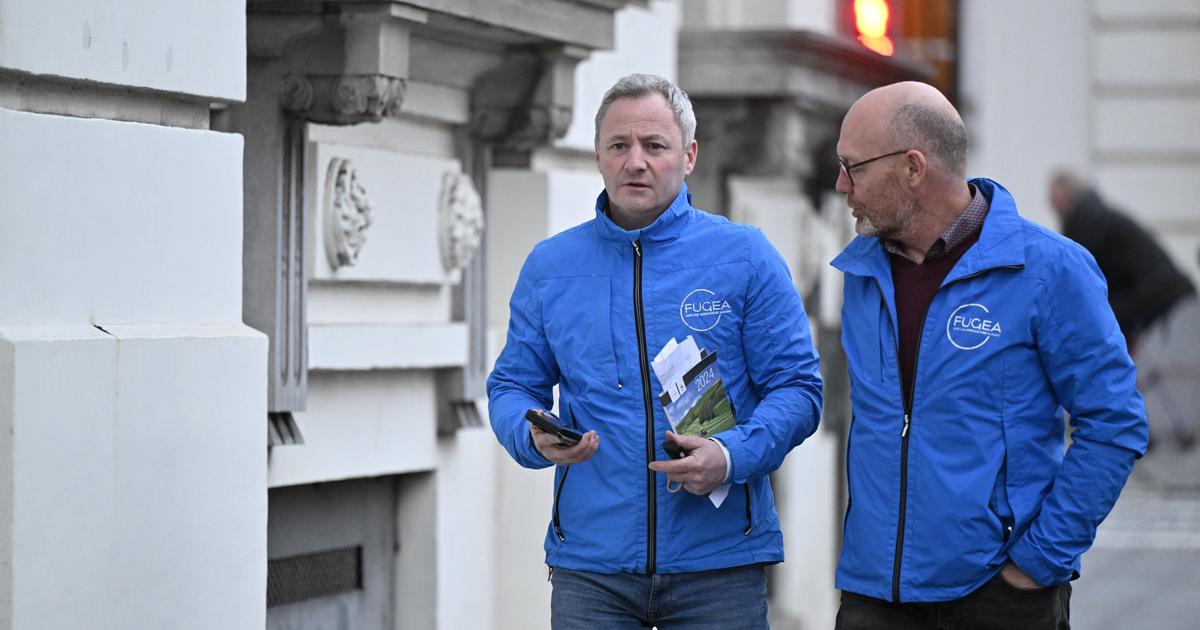Once again, the TotalEnergies group is in turmoil for its activities in countries scrutinized by the international community.
The newspaper Le Monde, based on the work of the British NGO Global Witness, revealed on Wednesday that TotalEnergies would have supplied liquefied gas used by the Russian army.
The Siberian gas produced by a company jointly owned by the group would have made it possible to manufacture fuel intended to supply Russian warplanes engaged in the conflict in Ukraine.
The Parisian returns to what we know.
What do we blame Total for?
Since the start of the conflict in Ukraine, TotalEnergies has publicly condemned Russian action on several occasions.
But according to Le Monde, the gas field of Termokarstovoye would have provided gas condensate for several months, which, once transformed, served as fuel for Russian military planes.
Global Witness has documented “hundreds of shipments of jet fuel from the Omsk refinery to Russian Air Force bases near Ukraine”.
Some 40,000 tonnes of kerosene were shipped to Sukhoi fighter-bomber bases in Morozovsk and Voronezh from February through July.
In Russia, TotalEnergies is a 19.4% shareholder in the Russian company Novatek, which also owns 51% of Terneftegaz, in which the French industrialist holds the remaining shares.
The Siberian Termokarstovoye field, operated by Terneftegaz, which supplied the gas condensate, is therefore jointly managed by the two companies.
What TotalEnergies refutes, explaining that the group "does not participate in the decisions of valorization of condensates by Novatek" and has "neither information on the sales which are made independently on the Russian market, nor control on these sales ".
This statement goes badly with Global Witness and the investigator who revealed the case, Louis Goddard.
He admits to Le Parisien not being "able to say what TotalEnergies knew or not" but underlines that his NGO "with less than 100 people and a small budget was able to trace the path of the fuel oil used by the Russian army".
Difficult, according to him under these conditions to believe "that a group the size of TotalEnergies was not able to do so".
Unlike other oil groups such as Shell, BP or Exxon, the TotalEnergies group is therefore still active in Russia and benefits from the surge in hydrocarbon prices.
The company recorded 10.2 billion euros in net profits in the 1st half of 2022.
What does the law say and what can be the consequences?
TotalEnergies claims not to be aware of the possible use made of some of its products.
However, as Clara Gonzales, a lawyer at Greenpeace, reminds us, "since 2017, French companies have been subject to the duty of vigilance" and this applies all the more to the oil giant "which is used to operating in areas of conflicts”.
This principle obliges companies to find out about the practices of their suppliers and their customers and engages their responsibility if breaches in terms of human rights or the environment are identified.
For the moment, therefore, it is difficult to determine whether TotalEnergies knowingly sold gas which ultimately served the Russian army.
A possible investigation would make it possible to determine to what extent the group disregarded its duty of vigilance” and whether offenses can be qualified with a view to possible prosecution.
TotalEnergies recalls having put in place a “vigilance plan” to identify and prevent all “serious violations of human rights and fundamental freedoms”.
But according to Louis Goddard of Global Witness, "the only way for TotalEnergies to ensure that its products do not serve the conflict in Ukraine is to completely cease its joint ventures".
One of the answers provided by TotalEnergies to "highlight that it can no longer sell its shares in companies because of European sanctions" particularly annoys the British investigator who is convinced that "such an imaginative group would not have no difficulty in finding a method to achieve this”.
What are the reactions?
TotalEnergies has categorically refuted the information published by Le Monde and denies having at any time had an operational role in the supply of fuel to Russian aviation.
Already in March, the company explained that it was maintaining activities in Russia that had no connection with the ongoing conflict in order to continue to supply Europe with hydrocarbons.
In a press release, TotalEnergies deplores "errors, shortcuts and untruths" while specifying that Novartek is the operator of the joint venture facilities and that it has not received a dividend since February 2022.
A Bercy executive quoted by Ouest-France was content to recall on Wednesday evening that "French companies must respect the sanctions decided by the 27 European countries", without specifying any consequences.
Thursday morning, the government's first official reaction came from Clément Beaune, questioned on France 2. The Minister of Transport mentioned "an extremely serious subject which justifies an investigation being launched to determine whether TotalEnergies, voluntarily or not, has passed apart from penalties.
For Greenpeace and Global Witness, even before a possible investigation, “the urgency is that the group sells its shares in the joint ventures”.
Otherwise, Clara Gonzales, of Greenpeace, affirms that the association “does not rule out legal action to finally obtain results”.









/cloudfront-eu-central-1.images.arcpublishing.com/prisa/KMEYMJKESBAZBE4MRBAM4TGHIQ.jpg)


